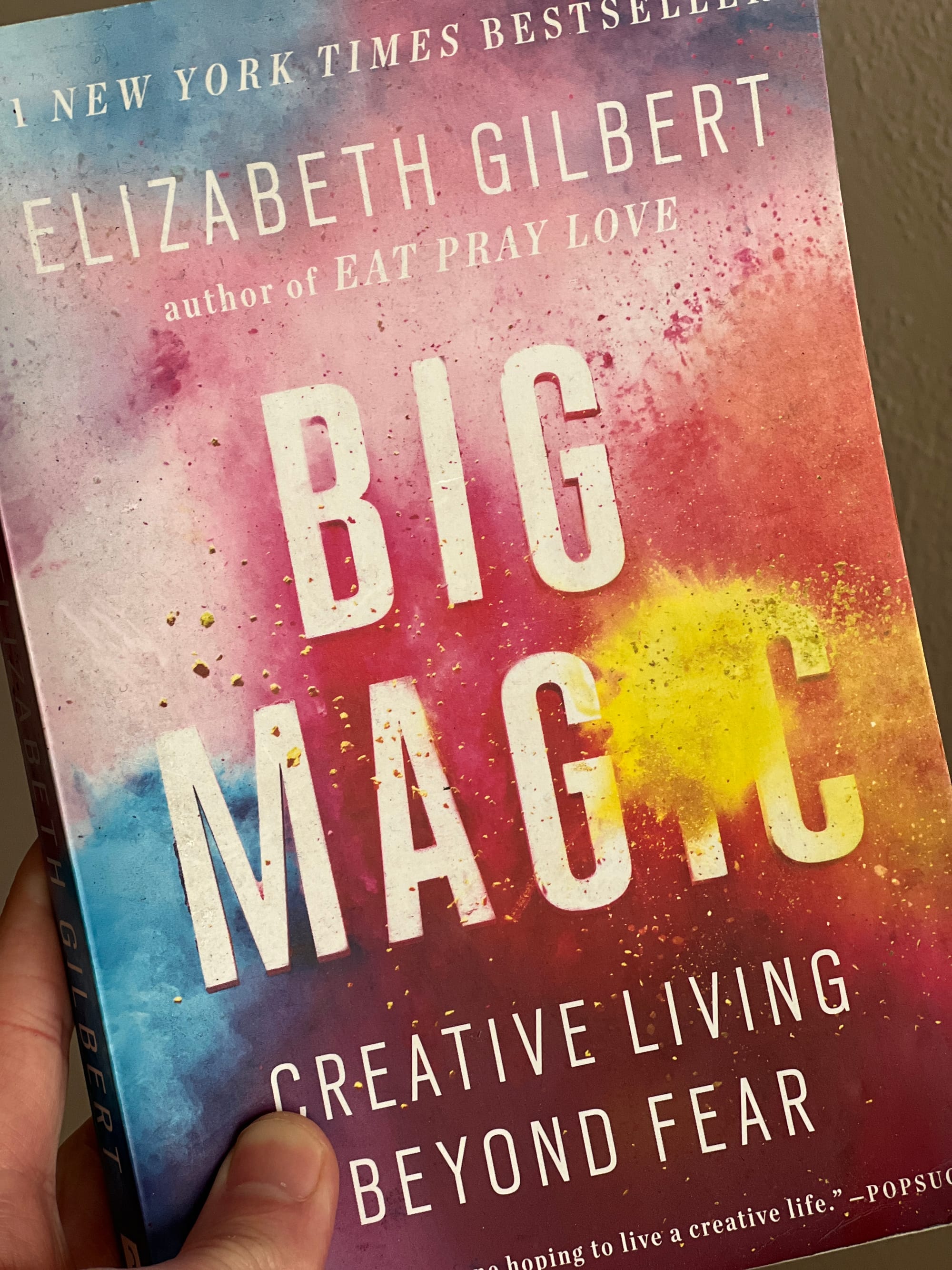Notebooks and Deeply Disciplined Half-Assery
How Elizabeth Gilbert's 'Big Magic' and the Blank First Page Youtube channel helped with creativity and notebook OCD.
Here's a confession: I often fall asleep at night re-listening to Elizabeth Gilbert's Big Magic.

Sometimes, counterintuitively, the way that seems most reasonable to quiet my mind is to fill it with someone else talking. Gilbert's voice is a nice one, but more than that, I respond to the messaging: how to better live a creative life.
Much of her advice resonates because she's a writer (though she takes pains to use examples of all sorts of creativity), and there's a sort of hope that, like a worried student might sleep with a science book under his pillow the night before a big exam in hopes that maybe, just maybe, the knowledge will seep through by some form of osmosis, I might wake up somehow more creative. More dedicated to my writing. More inspired.
But, too often, I'm beset by something she addresses in the section of the book dedicated to persistence.
Perfectionism stops people from completing their work, yes—but even worse, it often stops people from beginning their work. Perfectionists often decide in advance that the end product is never going to be satisfactory, so they don't even bother trying to be creative in the first place.
I find that to be so true that I can't even bring myself to start writing in a new notebook. Substantive fears—"what will I fill this book with?"—mingle with superficial ones—"why is my handwriting so ugly? why doesn't this pen match that one?" Each equally silly, because it's not even my forward-facing work; it's for me only. But therein lies the problem: The perfectionist is a harsh self-critic.
Gilbert's solution?
After recounting novelist Robert Stone's self-professed weakness—"two of the worst qualities imaginable in a writer: He was lazy, and he was a perfectionist"—she proposes the alternative:
You must learn to become a deeply disciplined half-ass.
This passage played, for no doubt the hundredth time, in my audiobook version of Big Magic, and it nicely coincided with a recommendation from Field Notes of a Youtube channel called Blank First Page.
In one video, titled "How to Use Notebooks (Overcoming Notebook OCD), he shares his strategy, which also happens to be how his channel got its name.
He simply leaves the notebook's first page (you guessed it) blank.
Not only does it address his OCD worries about messing up a new notebook, but it also has the added benefit of making you feel like you're further along in the notebook than you really are, that you're accomplishing things, that you're making progress.
I love this hack. I love knowing I'm not alone in my broken-brain way of thinking about notebooks as something I could ruin or mess up. I love knowing that my notebooks can be just the place to work out what it means to be a deeply disciplined half-ass.